Horses have a very different digestive system than ours. Their bodies are designed to eat small amounts of similar food (grasses, leaves, etc.) all day long. While we humans enjoy a varied diet, horses pretty much stick to plants! Because of their eating habits (constantly in small quantities) they have a very long digestive tract – 100 feet and mostly intestines. Compare that to our tract, which is only 30 feet!
The stomach, on the other hand, is small for an animal of their size, which is another reason why they have to graze and not eat too much all at one time. Their stomach has a capacity of just four gallons, and does best when it is only half full. An average adult human stomach holds about a quarter of a gallon.
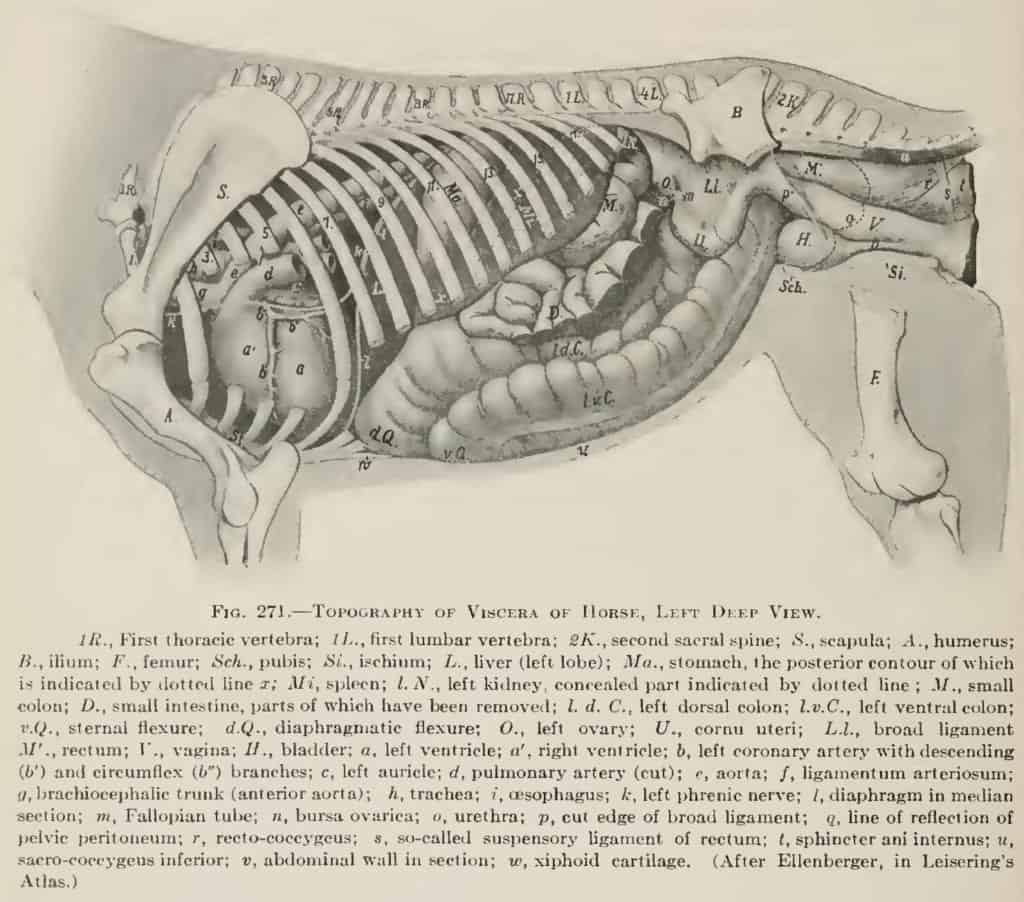
The human system
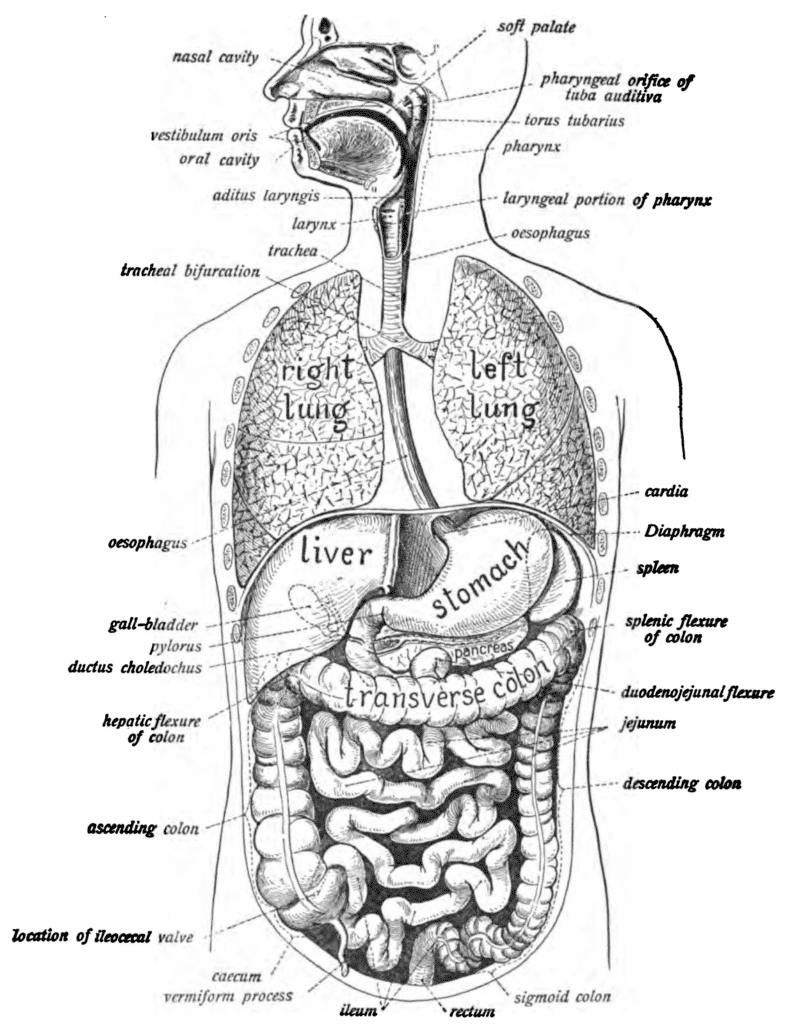
Knowing information about your horse’s digestive system can help you keep them happy and healthy. For instance, now you know why it’s important to make sure your horse always has access to food, even at night. Talk to your vet if you have an easy keeper or a horse that needs to shed some pounds. They can tell how you can keep their digestive system happy while not adding too many calories.
Why Your Horse Can’t Throw Up
Another difference that most horse people know is that horses do not vomit or burp – but why?
“Some species were designed to vomit or regurgitate to feed their young,” Dr. Stewart, an equine veterinarian at Silver Creek Animal Clinic in Silverton, Oregon. “The lifestyle of a horse wouldn't frequently benefit from vomiting.”
Horses, like us, have a band of muscle (cardiac sphincter), that connects the stomach to the esophagus. However, unlike ours, this muscle in the horse is very strong and really does act as a “one-way valve,” making it almost impossible for a horse to burp or vomit.
Dr. Stewart added that every once in a while horses do vomit, or at least try, but often this causes the stomach to rupture because the aforementioned valve is so strong.
Colicking
Why do horse's colic? Like most species, it’s a type of gastro-intestinal upset (we’ve all been there!). What many horse owners don’t know that is the term “colic” refers to the sign of something wrong, but not the actual diagnosis. Your horse could be colicking due to a number of different gastrointestinal issues.
While you just take an antacid and go about your day, your horse has bigger problems, literally.
“The size of their system, relative to their total mass, makes it potentially more serious,” explained Dr. Stewart. “Colic can be associated with, but not limited to: changes in feed, water intake, stress and travel. Occasionally horses colic when conditions are seemingly ideal.”
Horse Feeding Tips
Now that you know a bit about your horse’s digestive system, you may wonder if you need to change anything about the way you feed her. The following are some tips on feeding your horse from Dr. Stewart. Remember to always speak to your vet about your own horse’s specific needs before making changes to their diet.
- For the most part I prefer to feed off the ground, so they can raise their head to get away from any dust in the hay.
- Avoid feeding hay in any feeder or situation that contains or confines. There is dust (mold spores) in hay even if you can't see dust.
- Horses with similar levels of work in hot and cold weather will require more calories in colder weather.
- Good worming and dental care are important
- Good quality ingredients and regularity of supply is also important.
- Forage should be the vast majority of your horses diet, it gives them longer meal times which is a value. "Slow feeders", may also be suitable for some horses.
Horse Courses by Elaine Heney
- Listening to the Horse - The Documentary by Elaine Heney & Grey Pony Films
- Shoulder In & Out Training for better balance, bend & topline development with your horse
- Over 110+ Polework Exercises & Challenges to Download
- Dancing at Liberty & Creating Connection with Your Horse (11 lessons) - Grey Pony Films

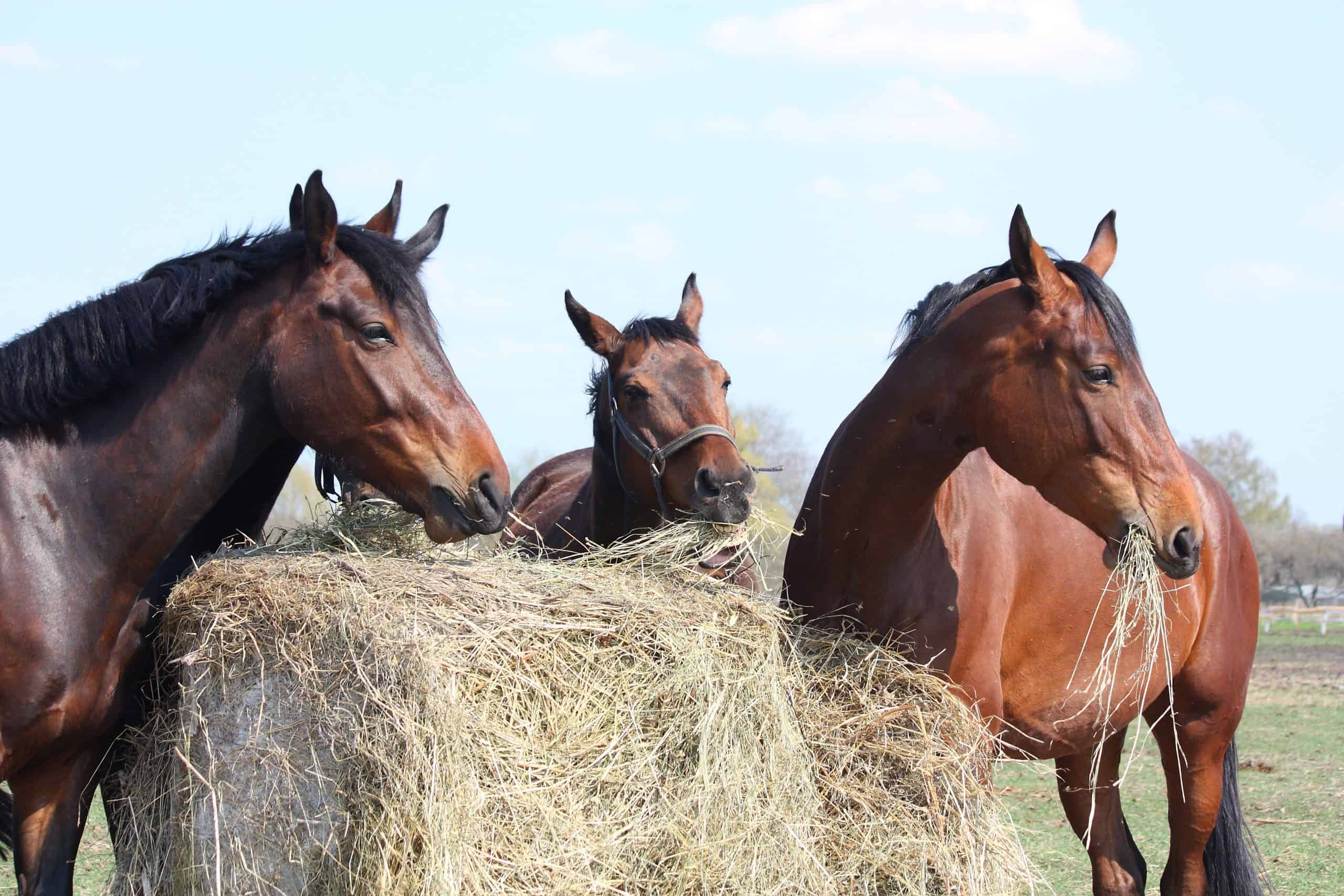
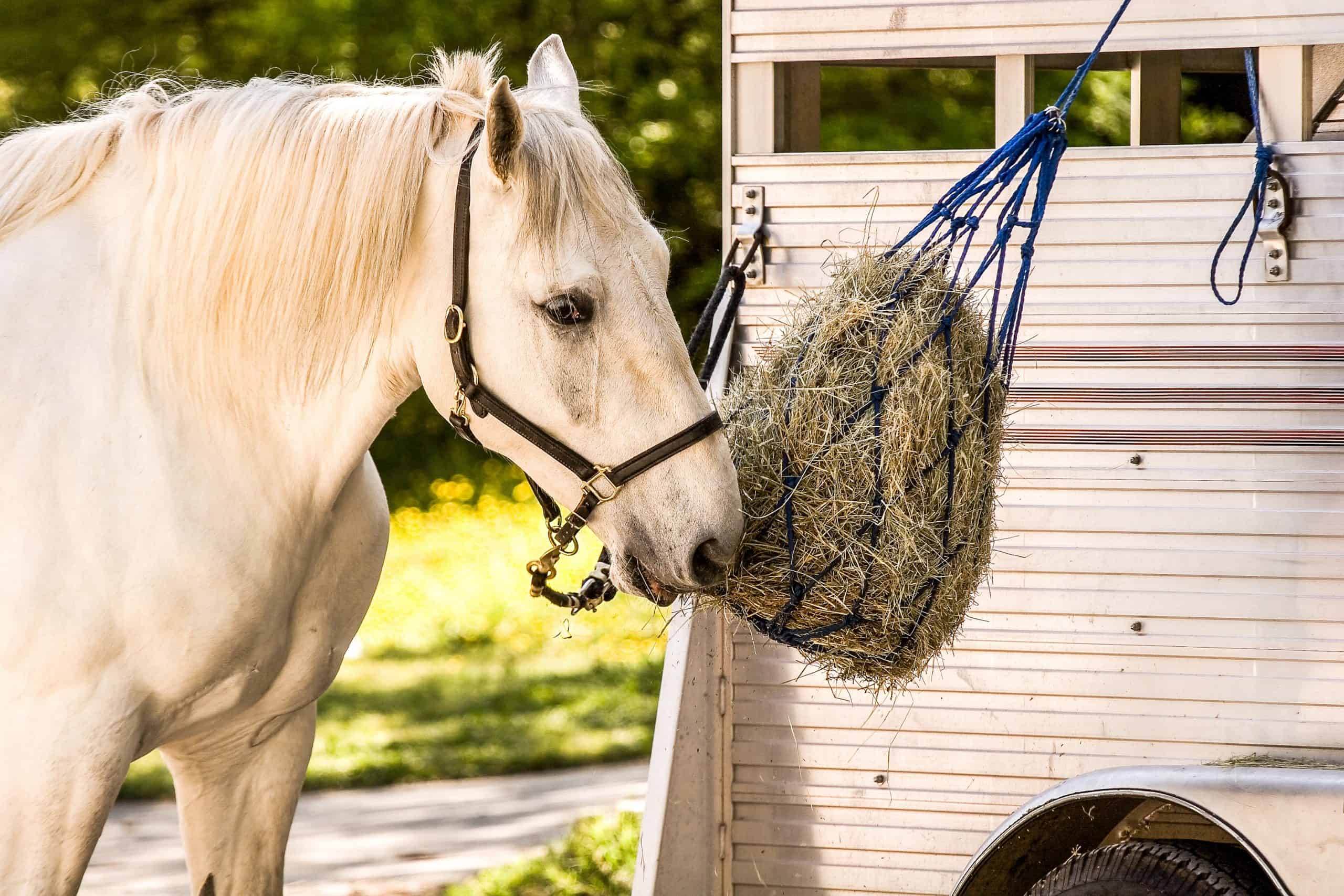
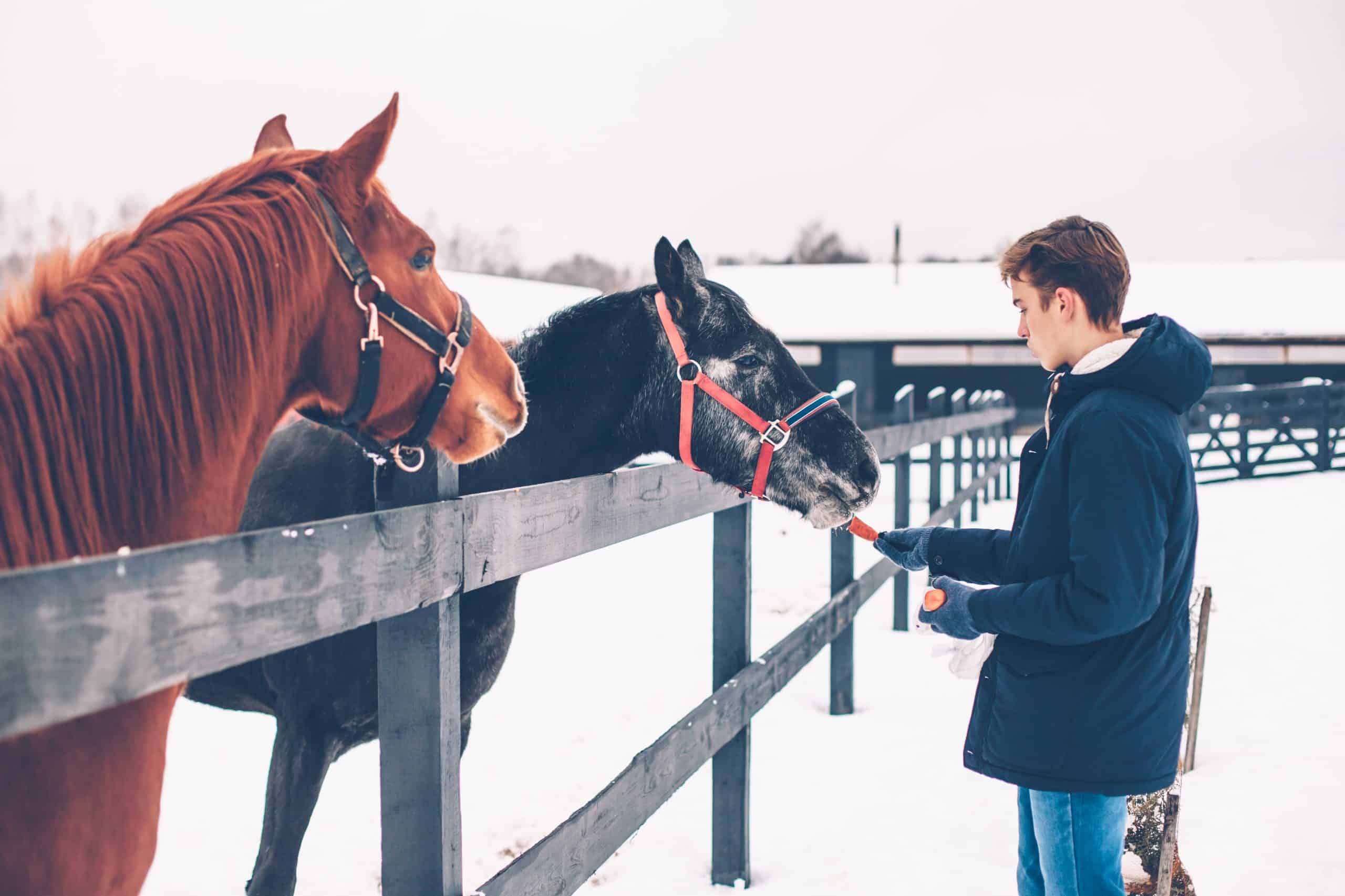
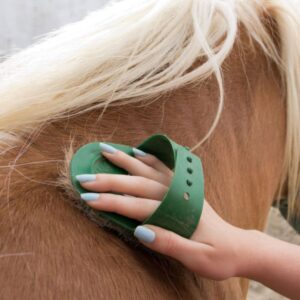
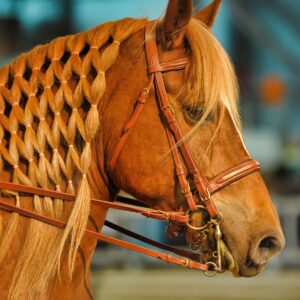
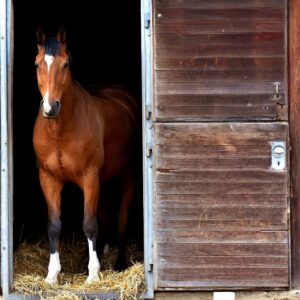
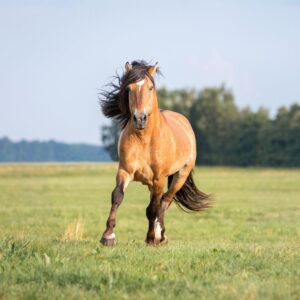
Leave a Reply